Related Research Articles

The Governor-General of India was the representative of the monarch of the United Kingdom in their capacity as the Emperor/Empress of India and after Indian independence in 1947, the representative of the Monarch of India. The office was created in 1773, with the title of Governor-General of the Presidency of Fort William. The officer had direct control only over his presidency but supervised other East India Company officials in India. Complete authority over all of British territory in the Indian subcontinent was granted in 1833, and the official came to be known as the "Governor-General of India".

Sir Richard Stafford Cripps was a British Labour Party politician, barrister, and diplomat.

Charles John Canning, 1st Earl Canning,, also known as the Viscount Canning and Clemency Canning, was a British statesman and Governor-General of India during the Indian Rebellion of 1857 and the first Viceroy of India after the transfer of power from the East India Company to the Crown of Queen Victoria in 1858 after the rebellion was crushed.

Frederic John Napier Thesiger, 1st Viscount Chelmsford,, styled the Lord Chelmsford until 1921, was a British statesman. He served as Governor of Queensland from 1905 to 1909, Governor of New South Wales from 1909 to 1913, and Viceroy of India from 1916 to 1921, where he was responsible for the creation of the Montagu–Chelmsford Reforms. After serving a short time as First Lord of the Admiralty in the government of Ramsay MacDonald, he was appointed the Agent-General for New South Wales by the government of Jack Lang before his retirement.
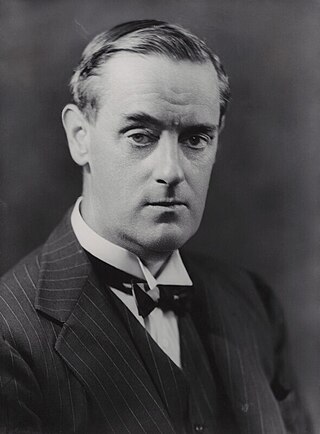
Victor Alexander John Hope, 2nd Marquess of Linlithgow, was a British Unionist politician and statesman, agriculturalist, and colonial administrator. He served as Governor-General and Viceroy of India from 1936 to 1943. He also served as vice president of the Royal Society of Edinburgh, Chancellor of the University of Edinburgh and Lord High Commissioner to the General Assembly of the Church of Scotland. He was usually referred to as LordLinlithgow, or simply Linlithgow.
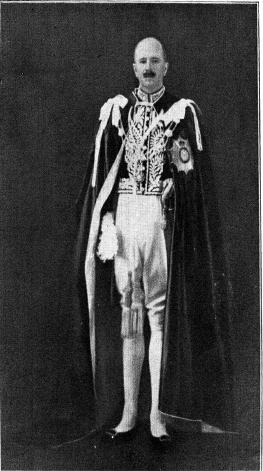
Arthur Oswald James Hope, 2nd Baron Rankeillour was a British politician, soldier and administrator. He was a Conservative and served as Member of Parliament for Nuneaton from 1924 to 1929 and for Birmingham Aston from 1931 to 1939, after which he was Governor of the Madras Presidency of British India from 1940 to 1946.
SirMuhammad Saleh Akbar Hydari KCIE, CSI was an Indian civil servant and politician. He was the last British-appointed Governor of the province of Assam, who also continued in the role after Indian independence.
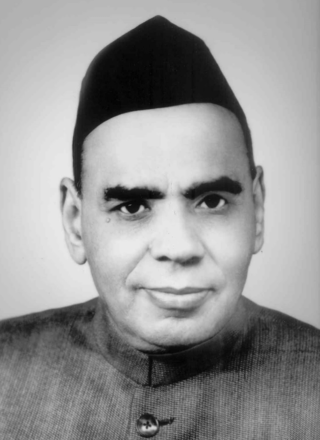
Sir Chandulal Madhavlal Trivedi KCSI, CIE, OBE, ICS was an Indian administrator and civil servant who served as the first Indian governor of the state of Punjab after Independence in 1947. He subsequently served as the first Governor of Andhra Pradesh from its creation in 1953 until 1957.

Sir Alexander Frederick Whyte was a British civil servant, Liberal Party politician, writer, and journalist.

The Central Legislative Assembly was the lower house of the Imperial Legislative Council, the legislature of British India. It was created by the Government of India Act 1919, implementing the Montagu–Chelmsford Reforms. It was also sometimes called the Indian Legislative Assembly and the Imperial Legislative Assembly. The Council of State was the upper house of the legislature for India.
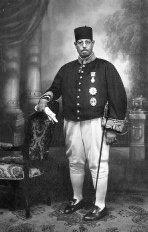
Khan Bahadur Sir Mohammad Usman was an Indian politician, hakim and socialite who served as the Minister of Home for the Madras Presidency in the Justice Party government of the Raja of Bobbili and as the first Indian acting Governor of Madras from 16 May 1934 to 16 August 1934. His name is often written Muhammad Usman.
Sir Norman Edward Marjoribanks was a British magistrate and civil servant in India who served as the acting Governor of Madras from 29 June 1929 to 11 November 1929.

The Viceroy's Executive Council, formerly known as Council of Four and officially known as the Council of the Governor-General of India, was an advisory body and cabinet of the Governor-General of India, also known as Viceroy. It existed from 1773 to 1947 in some form or the other.
Sir Harry Graham Haig KCSI CIE JP ICS was a British administrator in India.

Sir Atul Chandra Chatterjee was an Indian diplomat and government official who served as the Indian High Commissioner to the United Kingdom from 1925 to 1931 and was member of the governing body of the League of Nations Assembly in 1925 and 1946. He is known for proposing the India House in London in 1925, which was designed by Sir Herbert Baker and completed in 1930.
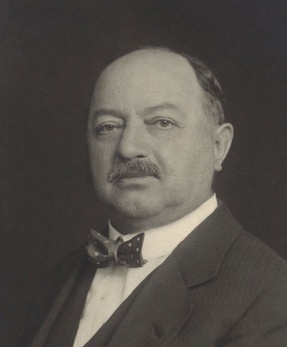
Sir Montagu Sherard Dawes Butler, was Governor of the Central Provinces of British India (1925–33), Lieutenant Governor of the Isle of Man (1933–37), and Master of Pembroke College, Cambridge (1937–48).
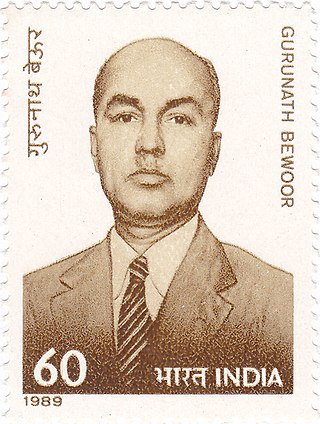
Sir Gurunath Venkatesh Bewoor KCIE, ICS was an Indian civil servant. He served on the Viceroy's Executive Council during the World War II and the first Indian director of the Post and Telegraph department of India. He later served as Managing Director of Air India.
Sir Conrad Laurence Corfield KCIE, CSI, MC,, was a British civil servant and the private secretary to several viceroys of India, including Lord Mountbatten. He also was the author of the book The Princely India I Knew, from Reading to Mountbatten.
Sir Joseph Bampfylde Fuller was a British inventor, writer and first Lieutenant Governor of the new province of Eastern Bengal and Assam, knighted for his service in India.
References
- ↑ "Sir Andrew Clow". The Times . 1 January 1958. p. 13.
- 1 2 "Aberdonian Knighted: Mr. Gourclay Clow, of I.C.S.". Aberdeen Journal . 9 June 1939.
- 1 2 "Two Scots on Gas Council". Dundee Courier . 18 December 1948.